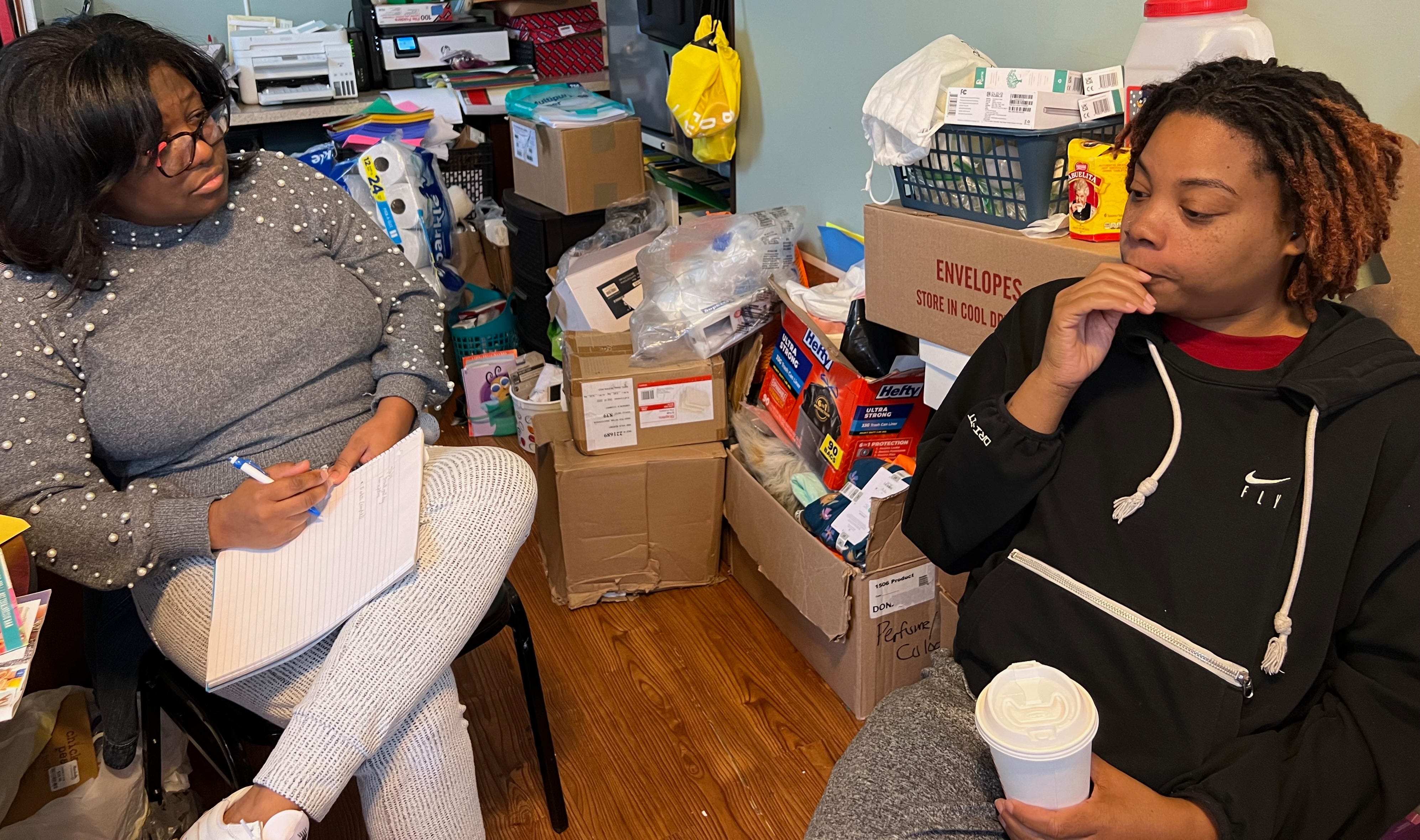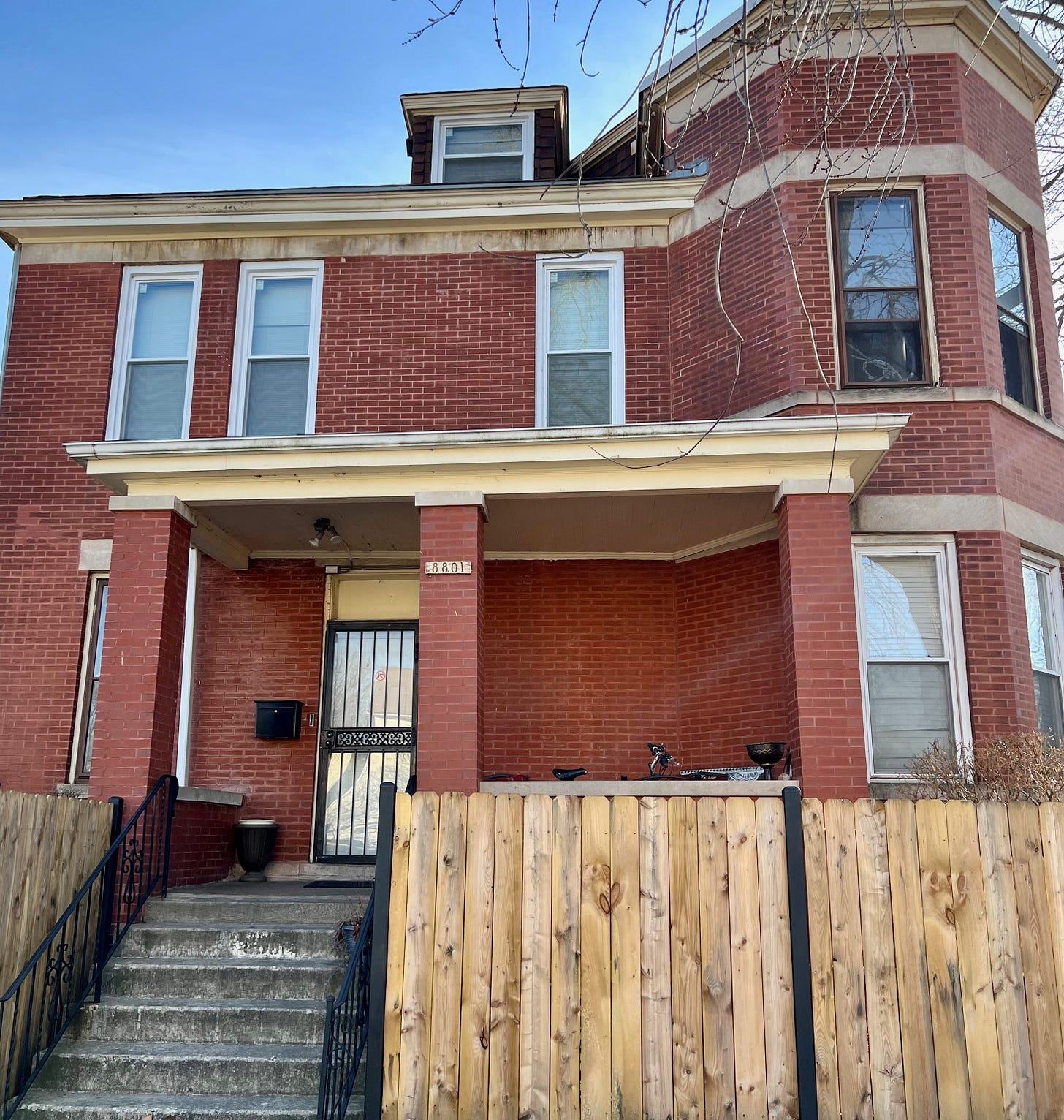One Woman The Glue To House Of Transformation
A mother of four, Elaine Seaton is executive director of Casa Esperanza that has for 30 years to assisted women and families in getting off the streets and into long-term housing.

By Erica M. Hayden
INSIDE A BRICK HOME on Chicago’s South Side, Elaine Seaton lives out her passion by providing for those in need of assistance. On occasion, that includes playing a game with the child of Casa Esperanza’s residents—the game sprawling with two alphabetical matches with vibrant hues spanning the rainbow.
A mother of four, Seaton is executive director of Casa Esperanza, a nonprofit organization that has for 30 years to assisted women and families in getting off the streets of Chicago and into long-term housing. Casa Esperanza’s mission is to provide women with psychotherapy, workshops, classes, and other services. Seaton says she was inspired to became involved in nonprofit work due to her grandmother who was a mother to the neighborhood.
“My grandmother had seven children, and she took in her sister’s two children. She’s been historically taking in people, honorary children in the neighborhood; feeding them, housing them, all the things,” said Seaton, 44.
“She [her grandmother] modeled that for me, she was also a foster mom for about 30 years with an organization called Kaleidoscope,” said Seaton. “What I learned from that is treating people well.”
Seaton initially went into medicine, science specifically. However, Seaton decided to go into soft science when finally starting college. Her college career began at Loyola University Chicago, although she finished her bachelor’s degree at Chicago State, University.
SEATON BEGAN HER CAREER in the 2000 at Lutheran General Services, where she has been working in social services for nearly 20 years. Dedicating the last 11 of those years to helping children who were separated from their families due to abuse or neglect, she said she transitioned to the University of Chicago as a care coordinator manager, working for nine years to help those living with high vulnerability to HIV or AIDS.
Seaton began working at Casa Esperanza in 2022 after she said her previous job left her feeling stagnant and lacked the opportunity for upward mobility. Since then, Seaton has witnessed many women and families who’ve stepped through the doors of Casa Esperanza looking for a different life.
“Maybe one of the hardest cases that I have experienced I have a young girl, 19, when she came to us, displaced from family, fleeing abuse from relatives, sleeping on the floor of a hospital bathroom, abusive relationship with partners, all the things,” said Seaton.
“And so as a mom, I'm like, how could this baby be outside with no place to go, having to flee abuse and neglect, sleeping in a hospital bathroom (of) all places. I just couldn't imagine that.”
For the last 30 years, Casa Esperanza had been primarily run by one person. But staffing has grown since Seaton’s arrival.
With the help of the CAPS project, the organization now has a case manager (Patricia Johnson) , a therapist (Kendreia Redmond), and two student-interns, as well as others. Both interns are students at local universities and shared similar sentiments about their experiences working at Casa Esperanza, especially about working with Seaton.
“Seeing her, it just makes me feel like I can do it. This staff, organization, and just her she running things,” said Drya Colvin, 35, intern from Walden University. “She’s overworked but she don't let that get her down. S he's here every day, even when she was on vacation she still was working.”
“She's an example for me,” Colvin added. “I gotta just keep on fighting, even though sometimes I just want to give up. But every time I think about school or intern I just look at her like, it could be, she makes it look easy like it could be that easy, but you just gotta keep on going.”
Seaton says she strives to make work transformative and believes one person alone cannot achieve such a goal. Seaton says she has partnered with community-based organizations to offer other services that they currently cannot provide. One of those partnering organizations is Family Rescue—dedicated to the elimination of domestic violence—to provide women and families with domestic violence seminars and services.
Among the many women and families entering Casa Esperanza, many graduate from the organization’s program. Some of them, including interns, in fact, return as alumni and continue being a part of Casa Esperanza. Those interns, like Isabella Barbour, assist residents of Casa in a number of programs.
Barbour, 23, is an art therapy student at Adler University and sees her work at Casa Esperanza as an opportunity to give, but also to gain invaluable experience.
“I've been given the opportunity to practice some of my group therapy skills a little bit. I cannot call it therapy, so I'm very clear with that,” Barbour said. “She has been my supervisor since September, but I have gotten a lot of other beneficial things from our working relationship that I didn't think that I was going to get.
“She's always looking for ways to benefit my learning experience and then to also make sure that everyone's voices are getting heard,” Barbour added.
Seaton says that without the influence of her grandmother, she would still be in the same field, helping and providing for others. Seaton runs another non-profit outside of Casa Esperanza called Destined for Greatness which has been running for nearly 17 years.
The purpose of Destined for Greatness is mentoring children, while also organizing a yearly retreat with guest speakers and seminars, Seaton explained. Some of the seminars include mental health, safe sex, and many more. Seaton explains she loves working with children and would like to continue working with them for as long as she can, all the while running Casa.
Seaton is diligently working to run her organization, Destined for Greatness, to mold the minds of children while also running Casa Esperanza to assist women and families seeking long-term housing, as well as provide any further assistance they may require, she said.
Seaton has been working in this field for two decades. Like Noemi Walker, many residents, have gone on to find their forever homes and secure reliable jobs.
“Miss Elaine, she's a very, she's a sweet person,” said Walker, 42. “If you need help, she helps you. I'm still in contact with her because she's still helping me do the things that I need to do to get fully on my feet or whatever.
“So she's a sweet person,” Walker added. “She's like my support system, because I don't have one.”






